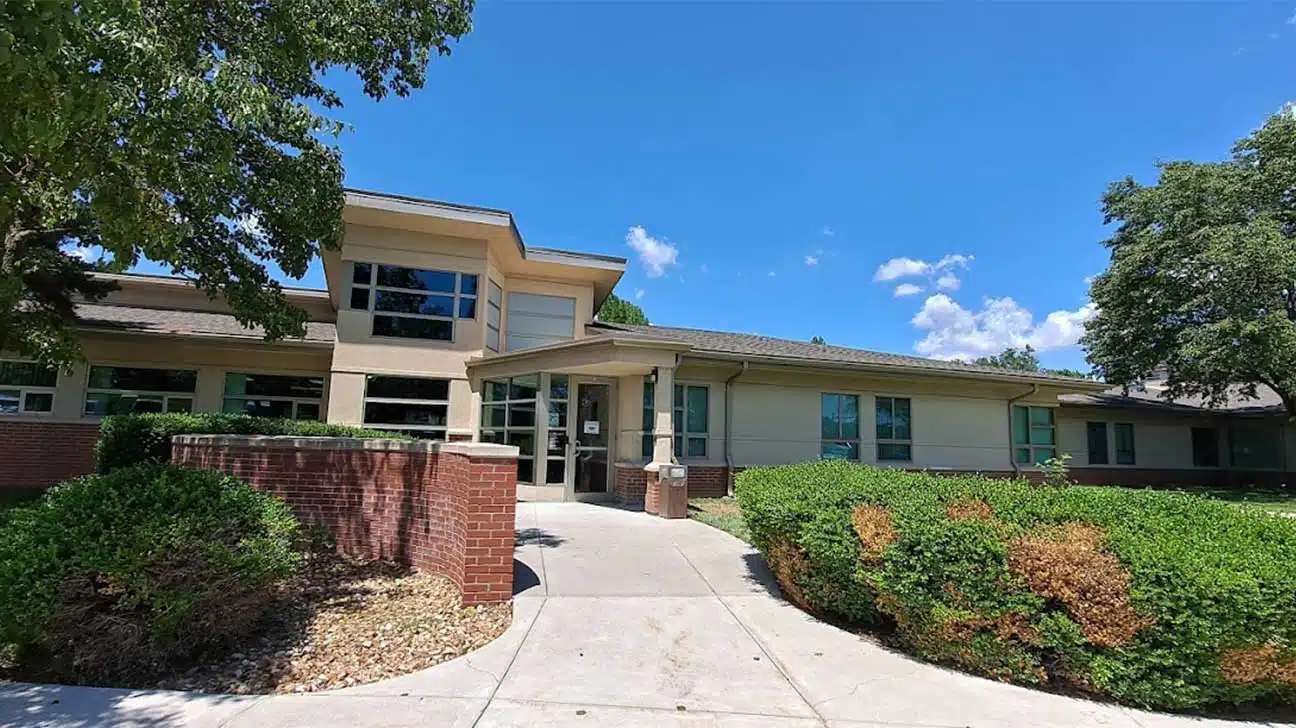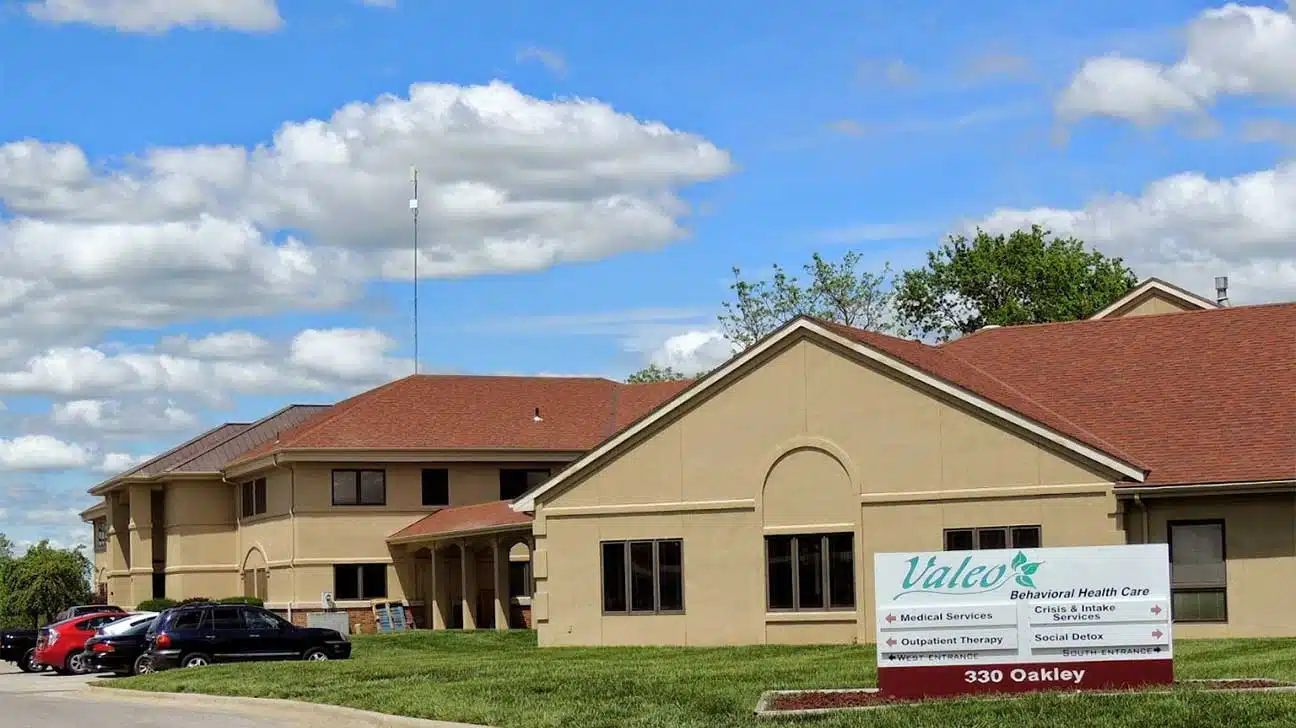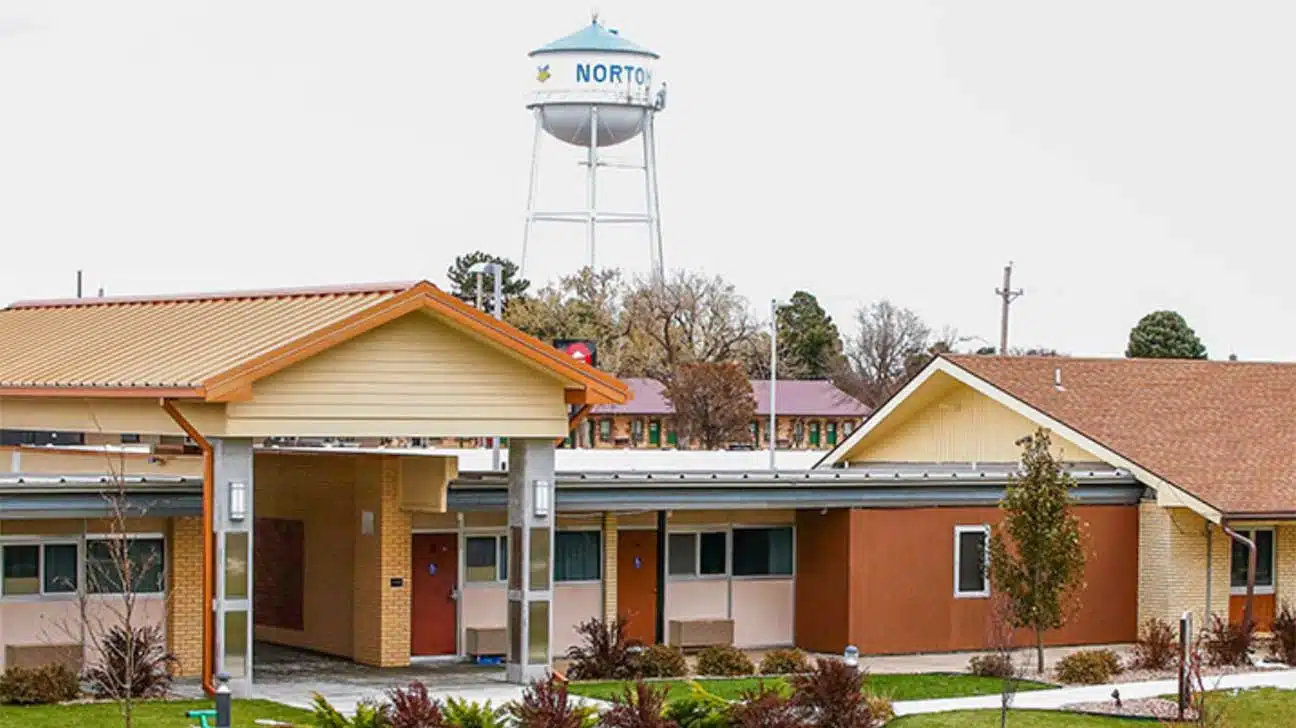
Kansas is a midwestern state that’s home to a number of rehab centers that accept Medicaid for drug and alcohol treatment.
This insurance program helps people with few financial resources access important medical treatment services throughout Kansas, including a range of substance abuse treatment options.
List Of Rehab Centers That Accept Kansas Medicaid (KanCare)
Below are five of the top addiction treatment facilities in Kansas that accept Medicaid. They were chosen for patient reviews, accreditation, and their high standards of care.
1. Developing Caring Communities Committed To Action (DCCCA), Lawrence, Kansas
DCCCA is a nonprofit drug and alcohol treatment center in Lawrence, KS (near Kansas City), that accepts Medicaid health insurance for payment.
Treatment services include:
- residential treatment
- outpatient services
- detoxification
- dual diagnosis treatment
- individual and group therapy
- wellness education
- parenting skills training
- life skills development
DCCCA is accredited by the Council on Accreditation (COA).
Location and contact information:
3015 W. 31st St.
Lawrence, KS 66047
(785) 843-9262
2. Johnson County Mental Health Center, Shawnee, Kansas
Johnson County Mental Health Center offers adolescent and adult treatment services for addiction in Shawnee, KS.
Treatment services include:
- residential treatment for adolescents
- inpatient detox unit for adults
- outpatient rehab treatment for adults and adolescents
- cognitive behavioral therapy
- motivational interviewing
- trauma-informed care
Johnson County Mental Health Center is a government-run facility that accepts Medicaid and is accredited by the Commission on Accreditation of Rehabilitation Facilities (CARF).
Location and contact information:
6440 Nieman Rd.
Shawnee, KS 66203
(913) 826-4200
3. Valeo Recovery Center (VRC), Topeka, Kansas
Valeo Recovery Center provides inpatient rehab services and intensive outpatient treatment for substance abuse in Topeka, KS.
This CARF-accredited treatment center accepts Medicaid, military insurance (such as TRICARE), and grants from the Substance Abuse and Mental Health Services Administration (SAMHSA).
VRC treatment services include:
- residential treatment
- social detox
- continuing care
- reintegration
- jail treatment program
- individual and group therapy with licensed
counselors
Location and contact information:
330 SW Oakley Ave.
Topeka, KS 66606
(785) 233-1730
4. Valley Hope, Norton, Kansas
Valley Hope is an addiction recovery center near Hays, KS, that offers outpatient and inpatient drug and alcohol treatment including detox and medication-assisted treatment (MAT).
Other treatment services include:
- individual therapy
- group therapy
- 12-step programming
- access to counselors, chaplains, and medical professionals
- virtual family care
- discharge planning
Valley Hope is licensed by the state and accredited by the Joint Commission.
Location and contact information:
709 W. Holme St.
Norton, KS 67654
(785) 877-5101
5. Wichita Comprehensive Treatment Center (CTC), Wichita, Kansas
This outpatient treatment provider offers MAT for patients overcoming opioid addiction in Wichita, KS.
CTC is a SAMHSA-certified opioid treatment program that provides addiction counseling in addition to MAT using methadone and buprenorphine.
This treatment center accepts Medicaid, Medicare health insurance, and private health insurance, and is accredited by CARF.
Location and contact information:
939 N. Main St.
Wichita, KS 67203
(844) 881-1638
Substance Abuse Treatment Services Covered By Kansas Medicaid
There are many variables involved in Kansas Medicaid (KanCare) insurance coverage.
The best way to find out what treatment services Medicaid covers is to have the rehab center propose your treatment plan to KanCare.
Generally, Medicaid covers behavioral health services, which can include:
- acute and social detox programs
- case management
- crisis intervention
- inpatient treatment
- opioid maintenance/treatment program
- treatment of co-occurring disorders
- outpatient treatment
- reintegration
- healthcare
- intensive outpatient programs (IOP)
- individual and group therapy using such modes as
- dialectical behavior therapy
- aftercare
How To Use Medicaid To Cover Drug Treatment In Kansas
Using KanCare to cover treatment for drug and alcohol addiction in Kansas is pretty simple. You use the service like you would use any other insurance provider for healthcare.
First, you need to find an addiction treatment center that accepts Medicaid. Then, you give your Medicaid insurance information to the treatment center.
At that point, your treatment center will communicate your treatment plan to Medicaid, and Medicaid will communicate what services are covered and what, if any, services are not.
If some services for alcohol and drug addiction are not covered, drug and alcohol rehab centers may offer clients a sliding fee scale
Cost Of Medicaid At A Kansas Medicaid Rehab Center
Assuming your treatment services are covered, substance abuse treatment, like other healthcare services, shouldn’t cost you anything.
You may have a monthly payment for Medicaid services if you have Medicaid for your children under the age of 19. Premiums can be between $20 and $50 depending on your income.
Kansas Medicaid Eligibility Requirements
The best way to find out if you can receive Medicaid is to apply for the program and let the government determine your eligibility.
Eligibility requirements for Medicaid can include:
- income
- age (for people who are elderly)
- adults with disabilities
- children with disabilities
- women who are pregnant
- families with children
Kansas Medicaid FAQs
Below are some of the most frequently asked questions about what KanCare (Kansas Medicaid) will or will not cover for addiction treatment at drug rehab centers in Kansas.
Does Medicaid Cover The Cost Of Long-Term Drug And Alcohol Treatment In Kansas?
KanCare covers long-term residential treatment for alcohol and drug abuse. In this service setting, the patient lives at the rehab facility for 60 days, 90 days, or longer.
Short-term residential treatment is usually considered to be 30 days or less.
Does Kansas Medicaid Cover Gender-Specific Addiction Treatment?
Gender-specific treatment can be part of an evidence-based treatment program if the client feels that they will benefit.
Gender-specific treatment for men and women-only rehab programs allow people to feel comfortable sharing about addiction issues unique to their gender.
Are There Christian Rehab Centers That Accept Kansas Medicaid?
There may be some faith-based Christian treatment centers that accept Medicaid in Kansas. It depends on the treatment center.
Many Christian rehab facilities want to remove the cost barrier to treatment and will accept Medicaid to do so.
Are There Kansas Medicaid Rehab Centers For Teens?
Yes, you can find teen rehab programs and adolescent rehab facilities that accept Medicaid for payment.
This can include inpatient and outpatient treatment for teens.
Does KanCare (Kansas Medicaid) Pay For Medication-Assisted Treatment?
KanCare covers the cost of MAT, or medication-assisted treatment. During MAT, patients can withdraw from their drug of abuse while being monitored by the rehab center.
Do Kansas Rehab Centers Offer Payment Assistance Other Than Medicaid?
Yes, some do. You may find Kansas addiction treatment services that are state-funded, accept private health insurance, or offer a sliding fee scale.
Find Addiction Treatment Today
Don’t hesitate to get help for substance abuse treatment if you or a loved one are struggling with a substance use disorder. Call AddictionResource.net to learn more about your treatment options.
Updated on March 21, 2023
Addiction Resource aims to provide only the most current, accurate information in regards to addiction and addiction treatment, which means we only reference the most credible sources available.
These include peer-reviewed journals, government entities and academic institutions, and leaders in addiction healthcare and advocacy. Learn more about how we safeguard our content by viewing our editorial policy.
- Benefits.gov—Kansas Medicaid
https://www.benefits.gov/benefit/1629 - The Joplin Globe—Medicaid expansion remains issue in Kansas
https://www.joplinglobe.com/news/local_news/medicaid-expansion-remains-issue-in-kansas/article_00f7de06-6efd-5575-b96f-b30a2415846d.html - State of Kansas Office of Information—KanCare
https://www.kancare.ks.gov/



